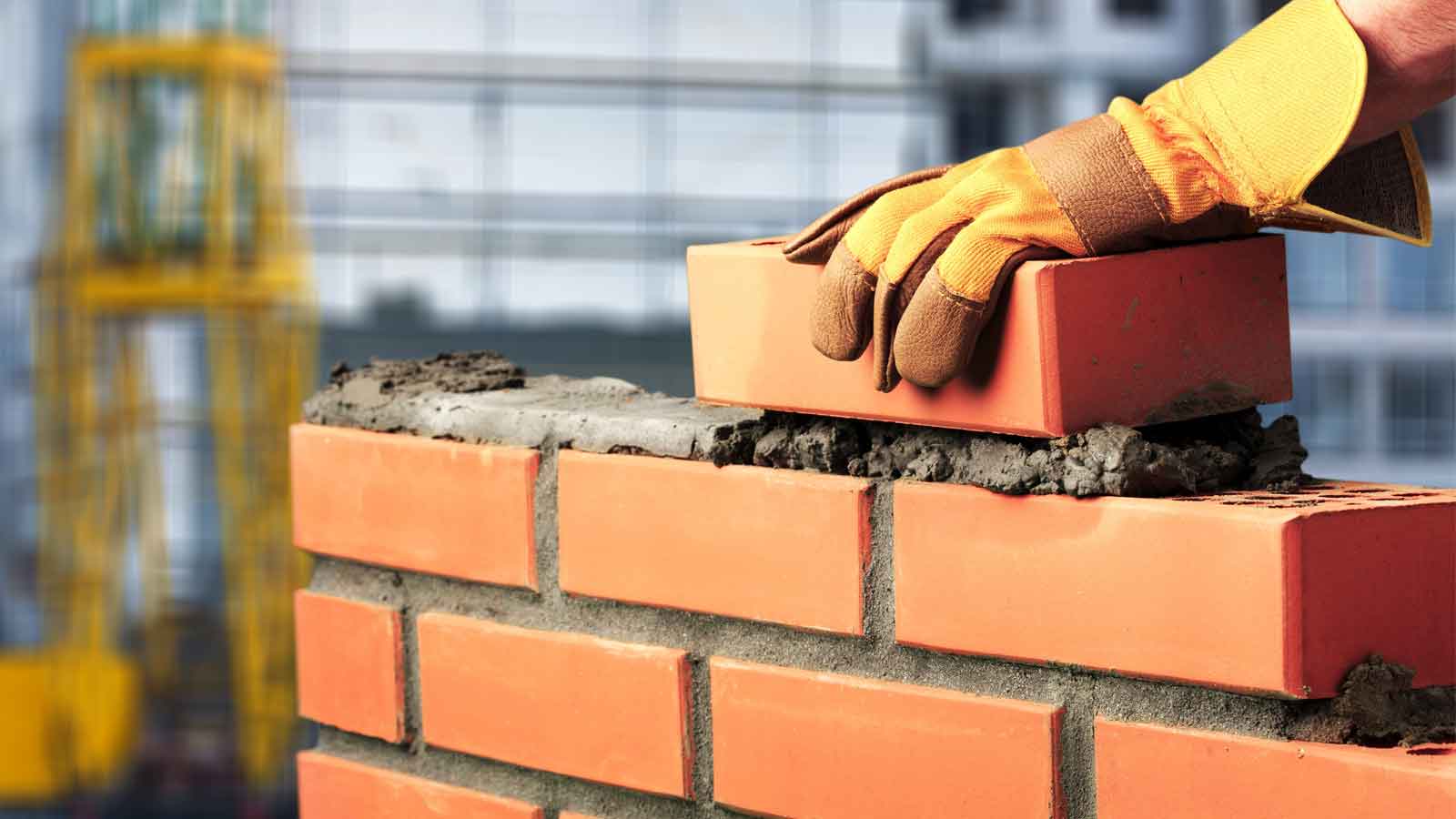Opening the Tricks of Lasting Stonework Building Practices for Eco-Friendly Buildings
Amongst the myriad strategies to green building, lasting stonework building stands out as a time-tested and long lasting method that holds a riches of untapped potential. From the choice of products to cutting-edge construction techniques, the secrets to attaining sustainability within masonry construction are diverse and interesting.
Benefits of Sustainable Masonry Building
Welcoming lasting stonework construction practices not only reduces ecological effect yet additionally supplies long-lasting financial benefits to builders and areas. By utilizing products like recycled blocks, obstructs, and stones, building contractors can dramatically reduce the carbon footprint of their tasks while advertising resource performance. Additionally, sustainable masonry construction strategies, such as appropriate insulation and thermal mass homes, can improve energy performance within buildings, bring about decreased operational prices with time.
In addition, the durability and durability of stonework structures contribute to long-term economic advantages. Buildings built utilizing lasting masonry techniques commonly require less repair and maintenance, translating to cost savings for home builders and property proprietors. The longevity of stonework products likewise makes sure that structures stay stable and safe, reducing the need for constant remodellings or substitutes.
Eco-Friendly Stonework Products
Using eco-friendly stonework materials is a critical step in the direction of boosting the sustainability of building and construction methods and lessening environmental impact while taking full advantage of lasting financial benefits. Lasting stonework products are sourced, produced, and made use of in a way that lowers total ecological effect. Materials such as recycled blocks, reclaimed stone, and sustainable cinder block are ending up being increasingly popular options for eco-conscious contractors. Recycled bricks, for example, not only divert waste from garbage dumps but additionally call for less energy to produce compared to new blocks. Reclaimed rock supplies a special aesthetic charm while decreasing the demand for brand-new quarrying. Lasting concrete obstructs include recycled aggregates and may feature better insulation buildings, adding to power effectiveness in buildings.
Moreover, natural materials like adobe, rammed earth, and straw bales supply superb thermal mass residential or commercial properties, minimizing the demand for home heating and cooling power. These materials are frequently locally offered, advertising local economic situations and decreasing transportation-related carbon discharges. By selecting eco-friendly stonework materials, building projects can considerably decrease their ecological footprint and add to the development of healthier, much more sustainable built environments.
Energy-Efficient Stonework Techniques
Energy efficiency plays an essential duty in improving the sustainability of stonework construction methods. By carrying out energy-efficient stonework methods, building contractors can considerably lower the general power usage of a building, resulting in lower operational prices and a smaller environmental footprint. One crucial energy-efficient stonework strategy is making use of thermal mass, which involves including dense products like concrete or block right into the structure's framework to take in and keep warmth. This assists control interior temperatures, decreasing the need for mechanical heating and cooling down systems.

Developments in Lasting Masonry
Recent innovations in sustainable masonry techniques have produced innovative techniques that are reshaping the building industry. One such development is the growth of self-healing concrete, which utilizes bacteria installed within the concrete to heal cracks autonomously. This innovation not only lowers upkeep costs this page but additionally improves the longevity of stonework frameworks, adding to their sustainability.
Another noteworthy innovation is the use of recycled aggregates in masonry construction - masonry contractor. By integrating products such as smashed ceramic waste or recycled glass right into concrete blends, home builders can reduce the environmental influence of construction jobs while maintaining structural stability. This practice not only draws away waste from land fills but also conserves all-natural resources, making it a vital improvement in lasting masonry building
In addition, the assimilation of electronic layout tools, such as Structure Information Modeling (BIM), is transforming the way masonry structures are intended and built. BIM permits more accurate computations, decreased material waste, and enhanced energy efficiency, ultimately resulting in more sustainable structure techniques. These technologies use this link jointly symbolize an encouraging future for sustainable masonry construction in the period of environmentally friendly buildings.
Future Trends in Masonry Sustainability
With the ingenious strides made in sustainable masonry methods, the future patterns in stonework sustainability are poised to more change the building and construction sector. Among the essential trends forming the future of masonry sustainability is the increased combination of modern technology. Improvements such as Building Details Modeling (BIM) and digital truth simulations are being utilized to enhance masonry building procedures, bring about decreased material waste stamped concrete on existing slab and improved power effectiveness in buildings.
Additionally, the advancement of novel sustainable products is set to play a significant duty in enhancing the eco-friendliness of masonry building and construction. masonry contractor. Innovations like self-healing concrete, recycled aggregates, and bio-based binders are gaining grip for their capacity to minimize ecological influence while preserving structural honesty

Verdict
In conclusion, sustainable stonework building and construction methods provide various benefits for eco-friendly structures. masonry contractor. Technologies in sustainable masonry are continuously being created to additionally improve the ecological performance of structures.